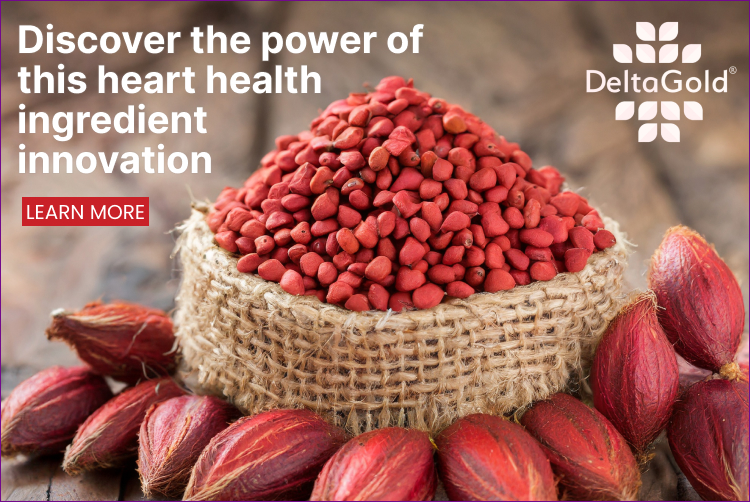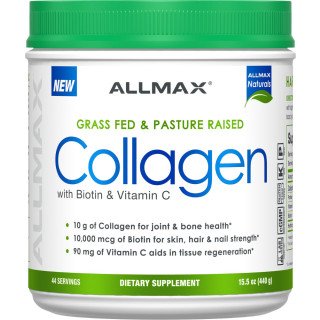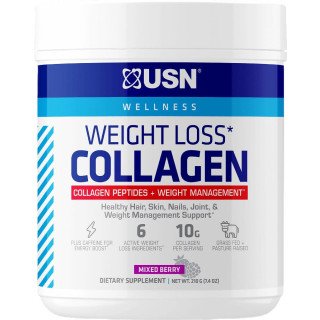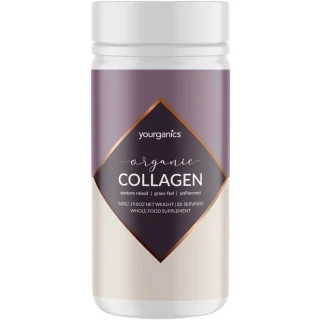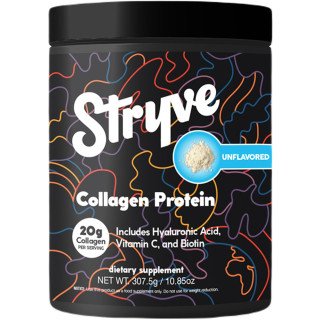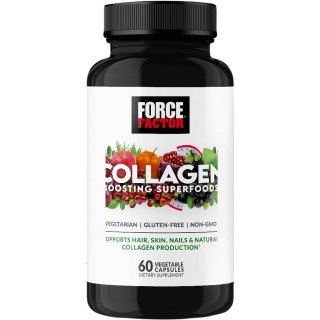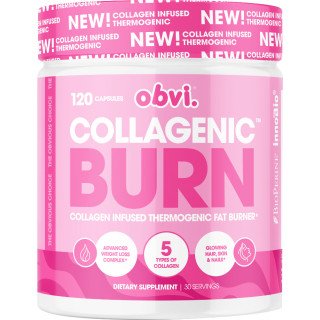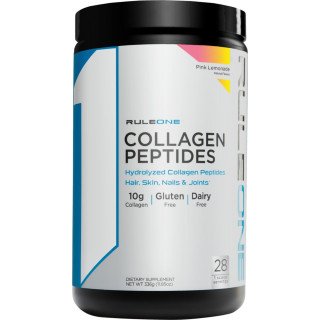In the world of dietary supplements, one name that has been making waves, especially in men's health, is Testofen® by Gencor...

SKIN HEALTH
SKIN HEALTH
Skin health is a key component of overall health as it is resilient and protects the body from harmful bacteria and viruses.
Ingredients
Specialty
Ingredients
Specialty Ingredients
Goal OVERVIEW
Skin health is the condition of the skin. Various factors influence it, including genetics, environment, lifestyle, and medical conditions. Healthy skin is smooth, clear, and free of blemishes. It is also resilient and can protect the body from harmful bacteria and viruses.
While some individuals might have a higher susceptibility to skin problems due to genetics, there’s hope for everyone to enhance skin health. Irrespective of your genetic predisposition, it’s important to consider how your environment influences your skin. Moreover, evaluate whether lifestyle choices are impacting your skin adversely. If conditions like acne, eczema, or psoriasis are present, taking proactive steps toward management is crucial.
What You Should Know
Keep in mind that your skin is the body’s largest organ and serves as a shield against the elements, regulates temperature, and aids vitamin D production. Factors like genetics, age, sun exposure, diet, and stress intertwine to influence skin well-being. Nurturing your skin is achievable through cleansing, moisturizing, and sun protection. In case of skin health concerns, consulting a dermatologist is wise. Embrace these insights to cherish your skin’s role in overall well-being.
FOOD FOR THOUGHT
Consider that each individual’s skin is unique, and what benefits one might not suit another. Experimentation is key to uncovering what suits you best, yet exercise caution in moderation, as an excess of even the finest things can prove detrimental. This principle holds particularly true for skincare. Refrain from over-washing, excessive exfoliation, or inundating your skin with multiple products – attune to your skin’s cues. Should irritation or dryness arise, pause your routine momentarily. Remember, occasionally granting your skin respite can be its greatest favor.

SHAGANDHA® BY SABINSA
Shagandha® is a standardized powdered extract from the roots of Withania somnifera, commonly known as ashwagandha. Shagandha® offers various health benefits, including reducing stress, anxiety, and insomnia while improving cognitive function, reducing inflammation, and boosting the immune system. It is available in capsules, powders, and teas and is often used in herbal mixtures. Considered to be a breakthrough Adaptogenic.
Sponsored Content
FAQ
Enhancing skin health using natural methods involves adopting a holistic approach that combines a healthy lifestyle, skincare practices, and a balanced diet.
Here are some natural methods to help improve and maintain healthy skin:
1. Stay Hydrated:
- Drink plenty of water throughout the day to keep your skin hydrated and maintain its elasticity.
2. Balanced Diet:
- Consume a diet rich in fruits, vegetables, whole grains, lean proteins, and healthy fats. These provide essential nutrients that promote skin health.
3. Antioxidant-Rich Foods:
- Incorporate foods high in antioxidants, such as berries, citrus fruits, leafy greens, and nuts. Antioxidants help protect your skin from oxidative stress and free radical damage.
4. Omega-3 Fatty Acids:
- Include sources of omega-3 fatty acids like fatty fish (salmon, mackerel), flaxseeds, and walnuts to support skin health and reduce inflammation.
5. Limit Sugar and Processed Foods:
- Minimize consumption of sugary foods and processed snacks, as they can contribute to inflammation and negatively impact skin health.
6. Hygiene and Skincare Routine:
- Follow a gentle skincare routine that includes cleansing, toning, moisturizing, and sunscreen. Use products suited to your skin type.
7. Natural Cleansers:
- Use natural cleansers like honey, oatmeal, or yogurt to cleanse your skin without harsh chemicals.
8. Sun Protection:
- Wear sunscreen with at least SPF 30 daily to protect your skin from UV rays and prevent premature aging.
9. Adequate Sleep:
- Prioritize 7-9 hours of sleep per night to allow your skin to repair and rejuvenate.
10. Stress Management:
- Practice stress-reduction techniques like meditation, deep breathing, and yoga to help prevent stress-related skin issues.
11. Regular Exercise:
- Engage in regular physical activity to improve circulation, which can enhance skin health.
12. Avoid Smoking and Limit Alcohol:
- Smoking can accelerate aging and damage collagen, while excessive alcohol consumption can dehydrate the skin.
13. Natural Moisturizers:
- Use natural moisturizers like coconut oil, shea butter, or jojoba oil to keep your skin hydrated and supple.
14. Herbal Teas:
- Herbal teas like green tea and chamomile contain antioxidants that can support skin health when consumed regularly.
15. Avoid Hot Water Baths:
- Hot water can strip the skin of natural oils. Opt for lukewarm water when bathing.
16. Stay Active:
- Regular exercise promotes healthy circulation, which can benefit your skin’s appearance.
17. Limit Harsh Exfoliation:
- Avoid excessive exfoliation, as it can irritate the skin. Use gentle exfoliants and limit frequency.
18. Get Fresh Air:
- Spend time outdoors to get fresh air and natural vitamin D. Apply sunscreen.
Remember that various factors influence skin health, and results may take time. Everyone’s skin is unique, so paying attention to your skin’s needs and adjusting your routine accordingly is important. Consider consulting a dermatologist or skincare professional for personalized advice if you have specific skin concerns.
A healthy diet rich in nutrients can promote skin health from the inside out. Including various nutrient-dense foods can help maintain a clear complexion, support collagen production, and reduce inflammation.
Here are some foods that are particularly beneficial for promoting skin health:
1. Fruits and Vegetables:
- Berries (blueberries, strawberries, raspberries): Packed with antioxidants that protect the skin from damage.
- Citrus fruits (oranges, grapefruits, lemons): High in vitamin C, which supports collagen production and helps with wound healing.
- Leafy greens (spinach, kale, Swiss chard): Rich in vitamins A, C, and K, as well as antioxidants like lutein and zeaxanthin.
- Carrots contain beta-carotene, which the body converts into vitamin A for healthy skin.
- Bell peppers: High in vitamin C and antioxidants that support skin health.
2. Fatty Fish:
- Salmon, mackerel, and sardines: Rich in omega-3 fatty acids that help maintain skin moisture and reduce inflammation.
3. Nuts and Seeds:
- Walnuts: High in omega-3 fatty acids and antioxidants that support skin elasticity.
- Almonds: Rich in vitamin E, which helps protect the skin from oxidative stress.
- Flaxseeds: Contain omega-3 fatty acids and lignans that can support skin health.
4. Whole Grains:
- Oats, brown rice, quinoa: Provide complex carbohydrates and fiber that can contribute to overall skin health.
5. Avocado:
- It contains healthy fats and vitamin E, which nourish the skin and support its barrier function.
6. Green Tea:
- Rich in antioxidants, particularly catechins, which can protect the skin from damage caused by UV rays.
7. Tomatoes:
- It is high in lycopene, an antioxidant that may help protect the skin from sun damage.
8. Sweet Potatoes:
- Rich in beta-carotene and vitamins A and C contribute to healthy skin and collagen production.
9. Broccoli:
- It contains vitamins A and C and sulforaphane, which may have protective effects on the skin.
10. Greek Yogurt:
- It contains protein and probiotics that can support gut health, which is linked to skin health.
11. Dark Chocolate (in moderation):
- Dark chocolate with a high cocoa content contains antioxidants that can contribute to healthy skin.
12. Pumpkin Seeds:
- Rich in zinc, it supports skin health and may help control oil production.
13. Turmeric:
- It contains curcumin, an anti-inflammatory compound that may benefit skin health.
14. Bell Peppers:
- It is an excellent source of vitamin C, which supports collagen production and protects the skin from damage.
15. Water:
- Staying hydrated is essential for maintaining skin moisture and overall health.
Remember that promoting skin health requires a balanced and varied diet. Incorporating a wide range of nutrient-rich foods can help provide the vitamins, minerals, antioxidants, and healthy fats that support the skin’s appearance and function. Consult a dermatologist or registered dietitian who can provide personalized recommendations if you have specific skin concerns.
Several supplements are commonly used to support skin health and are backed by research for their potential benefits. It’s important to note that while supplements can complement a healthy skincare routine and diet, they should not replace a balanced diet and proper skincare practices.
Here are some skincare supplements that are shown to improve skin health:
1. Collagen Supplements:
- Collagen is a protein that contributes to the skin’s structure and elasticity. Collagen supplements improve skin hydration, elasticity, and overall appearance. Look for collagen peptides derived from marine or bovine sources.
2. Vitamin C:
- Vitamin C is a potent antioxidant that supports collagen synthesis, protects the skin from oxidative stress, and helps heal wounds.
3. Vitamin E:
- Vitamin E is an antioxidant that helps protect the skin from damage caused by free radicals and UV rays. It can also support skin hydration.
4. Vitamin A (Retinol):
- Vitamin A supports skin health and cell turnover. Retinol, a form of vitamin A, is commonly used to improve skin texture, reduce the appearance of fine lines, and treat acne.
5. Omega-3 Fatty Acids:
- Omega-3s from fish oil or algae can help maintain skin moisture and reduce inflammation, contributing to a smoother complexion.
6. Zinc:
- Zinc is essential for skin health and may help manage acne. It supports wound healing, collagen production, and oil control.
7. Biotin:
- Biotin (vitamin B7) is important for healthy skin, hair, and nails. While deficiencies can affect skin health, excessive biotin intake should be avoided.
8. Hyaluronic Acid:
- Hyaluronic acid is naturally present in the skin and helps retain moisture. Supplements may support hydration and skin elasticity.
9. Silica:
- Silica is a mineral that contributes to healthy skin, hair, and nails. It’s involved in collagen production and skin elasticity.
10. Astaxanthin:
- Astaxanthin is a powerful antioxidant found in certain seafood. It may help protect the skin from UV damage and improve skin elasticity.
11. Coenzyme Q10 (CoQ10):
- CoQ10 is an antioxidant that supports energy production in skin cells and helps protect against oxidative stress.
12. Probiotics:
- Probiotics support gut health, which can indirectly impact skin health. A healthy gut microbiome may contribute to clearer skin.
13. Pycnogenol:
- Pycnogenol is a plant extract that may have antioxidant and anti-inflammatory effects, benefiting skin health.
14. Selenium:
- Selenium is a mineral with antioxidant properties that can help protect the skin from oxidative damage.
15. Green Tea Extract:
- Green tea contains polyphenols that have antioxidant and anti-inflammatory effects. Supplements may support skin health.
Before starting any new supplement regimen, it’s important to consult with a healthcare professional, especially if you have underlying health conditions or are taking medications. Additionally, remember that supplements work best when combined with a healthy diet, proper skincare routine, and other lifestyle practices that support overall well-being.
Related Videos
Articles
Absolutely, Magtein® certainly deserves to be in the conversation alongside renowned supplements like Sensoril® and KSM-66®. However, it's important to recognize the...
Testofen® is an innovative natural ingredient primarily derived from fenugreek, a well-regarded herb known for its health-enhancing properties. This specialized...


